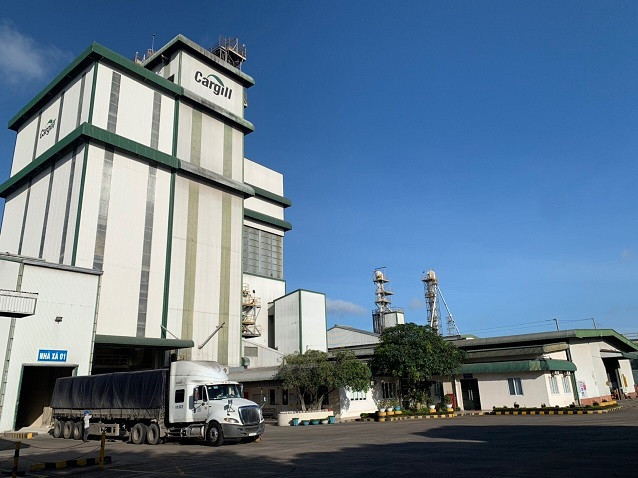Following Vietnam launching its Doi Moi in 1986 featured by a strong economic restructuring towards a socialist-oriented market-based economy, a Law on Foreign Investment was approved in 1987 (replacing a mostly unused 1977 Code on Foreign Investment). This new law was one of the first formal indications of Vietnam’s commitment to international economic integration.
Since the late 1980s, foreign direct investment (FDI), combined with the opening up of the country to the movement of people, ideas, trade and technology, has helped to transform the Vietnamese economy and society.
Telecommunications provides a concrete example of the impact of FDI.
“Up until the late-1980s, all international telephone calls to and from Vietnam were made via a UHF connection through Moscow. One of the first foreign investments was made in the late 1980s by Telstra, an Australian telecommunication company, to connect Vietnam with the world’s telecommunications network via a satellite earth station,” said Raymond Mallon, a senior economic expert with decades of research on Vietnam’s economy.
Telstra went on to invest in national fibre optic landline systems, earth stations and submarine fibre optic cables. Vietnam now has a vibrant, competitive and relatively low-cost telecommunications sector with relatively high (by regional standards) mobile and internet telecommunications penetration rates. Improvements in telecommunications are facilitating access to international markets, ideas, education, and technology.
Since then, according to Vietnam’s Ministry of Planning and Investment, accumulatively as of April 20, Vietnam had 37,065 active foreign-funded projects registered at over 445.87 billion USD. In the first four months of 2023, the total newly registered capital, adjusted capital, and capital contributions and share purchases of foreign investors stood at about 8.88 billion USD, equivalent to 82.1% on-year. Total FDI disbursement hit 5.85 billion USD, down 1.2% on-year but up 1% as compared to the first two months of 2023.
Accumulatively to date, total disbursement reached 275 billion USD, tantamount to 62.5% of total registered capital.
About 143 countries and territories have been investing in Vietnam in 19 economic sectors, with the leaders being processing and manufacturing (260.1 billion USD or 59.3%), real estate (66.3 billion USD or 15.1%), electricity production and distribution (38.3 billion USD or 8.7%).
Growing confidence
Under a survey by the Japan External Trade Organization (JETRO) on Japanese investment in Asia and Oceania 2022, Vietnam’s economy continues to recover and its business expansion intend to rank first in the ASEAN.
The survey received responses from 603 Japanese enterprises operating in Vietnam and most of them wished to expand their business and operation in Vietnam.
Regarding business prospects, in 2022, 47.6% of surveyed Japanese businesses answered “improved”, and in 2023 the percentage was 53.6%.
According to JETRO, the main reason for the improving business profits in Vietnam, especially the manufacturing and consumption industry and service industry, is due to the increase in exports and domestic’s consumption. Both manufacturing and non-manufacturing sectors are forecast to improve by 50% in 2023.
What is more, 60% of Japanese enterprises said they would expand their investment in Vietnam in the next one to two years, up 4.7 points from the previous year. It was the highest among Southeast Asian countries, after India (72.5%) and Bangladesh (71.6%).
Marko Walde, chief representative of the Delegation of German Industry and Commerce in Vietnam (AHK Vietnam) and vice chairman of the German Business Association in Vietnam (GBA Vietnam) said that Vietnam has recently developed into an attractive investment location for German companies, which are now diversifying their interest in Asia. They are drawn in by the reasonable and high-quality labor, open investment environment and growing local market, dynamic economic development, the stable political environment, and its global integration.
“In recent years, Vietnam has turned into a bright spot for FDI, especially for German investors,” Walde said. “In our AHK World Business Outlook 2022 conducted in spring, nearly 93% of German companies will continue to invest in Vietnam and over 64% of them expect their business to develop better in the next 12 months. These are the results of Vietnam’s border reopening and the government’s drastic and timely policies in boosting post-pandemic economic recovery. Implementing business activities in Vietnam, German investors evaluate the importance of the following factors most: availability of skilled labour forces, the quality of the education and the logistics and infrastructure.”
Adam Sitkoff, executive director of the American Chamber of Commerce (AmCham Hanoi), also said over the past decades, US companies and investors have contributed significantly to the transformation and growth of Vietnam’s economy.
“This continues today as AmCham members represent billions of US dollars in foreign investment, tens of thousands of direct employees, hundreds of thousands of indirect employees, and a significant share of Vietnam’s exports and tax revenues,” Sitkoff said.
A key driver
After 48 years since the national reunification, Vietnam has been a development success story. Economic reforms since the launch of doi moi in 1986 have helped propel Vietnam from being one of the world’s poorest nations to a middle-income economy in one generation. During 2002 - 2021, GDP per capita increased 3.6 times, reaching almost 3,700 USD. Poverty rates (1.90 USD a day) declined sharply from over 32% in 2011 to below 2% last year. FDI has been among the key contributors to economic development.
“FDI has continued to make great contributions in promoting economic restructuring, economic growth, import and export, and job generation, as well as in enriching the state budget, and boost the development of domestic enterprises,” said Minister of Planning and Investment Nguyen Chi Dung. “Foreign investors have brought us capital, experience, and technology. They have contributed to the formation of a number of key industries in the economy, such as oil and gas, electronics, and telecommunications.”
“FDI has also promoted technology transfer to Vietnam, improving the economy’s level of technological adoption, and at the same time puts pressure on many domestic enterprises to actively innovate technology and equipment in order to improve the quality of their products and services and enhance their competitiveness,” Minister Dung continued.
According to the Vietnamese Ministry of Planning and Investment, in the 2021-2022 period, foreign invested enterprises (FIEs) contributed more than 20% to GDP and state budget revenue. Their export turnover hit nearly 276.5 billion USD, up 12% in 2021, accounting for 74.4% of the total turnover. Their import turnover reached more than 234.7 billion USD, up 7.4% in 2021 and accounting for 65.1% of total import turnover. They also reaped a trade surplus of over 41.8 billion USD, offsetting a trade deficit of nearly 30.8 billion USD from domestic enterprises and creating a trade surplus of 11 billion USD for Vietnam. FIEs generated employment for about 4.3 million direct workers and around 10 million indirect workers.
“Without FDI, Vietnam’s economy has been unable to overcome difficulties and reap achievements as it is witnessing today,” said senior economic expert Nguyen Mai who has decades with in-depth study on FDI.
Such big contributions from FIEs have been made possible by the government’s consecutive creation of a favourable business and investment climate for investors, and their confidence in the country’s outlook.
“The stability and robust development of the Vietnamese economy offer numerous opportunities for investors worldwide. I call on investors to cooperate in safely resuming production to fulfill orders and maintain supply chains,” stated Prime Minister Pham Minh Chinh at the recent meeting between him and foreign investors in Hanoi.
New orientation
Under the resolution of the 13th National Party Congress held in early 2021, the Party specified a number of strategic breakthroughs for the country to become a developing country with modernity-oriented industrial development by 2025 when per capita GDP will be 4,700-5,000 USD; a developing nation by 2030 with modern industrial development and upper-middle income; and a developed economy with high income by 2045.
The Party has determined that FDI is an important part of the national economy with a big role to play in mobilising investment capital, technology, modern governance, and expanding export markets.
“A shift is to be made from attracting FDI in quantity to quality. Priorities are to be for projects with high technology and high added values, and with mordern governance models, high spillover effects, connecting with domestic businesses,” stated a report passed at the congress.
PM Chinh committed, “The Vietnamese government will continue to provide every favourable condition for your investment in prioritised sectors with preferential benefits in Vietnam, such as advanced technology, information technology, supporting industries, smart agriculture, environmental protection, renewable energy, and infrastructure projects in service of social security,” PM Chinh said. “The government has established a special working group to address outstanding issues. Having considered FIEs as an important part of our economy, we pledge to protect the legitimate and lawful rights and interest of investors, and ensure the shared benefits of the state, investors and laborers.”
















